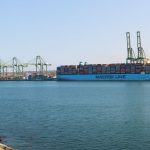Portugal will draw on EU’s €15.3Bn in recovery plan
Portugal will fully draw on €15.3Bn in EU subsidies earmarked for the country.
However, its Prime Minister António Costa said it would not, for the time being, use up other funds in the form of loans set aside within the pandemic Recovery Fund “until the country’s financial situation permitted it.”
“This plan mobilises subsidies and loans. We have got a very high public debt and we have to emerge from this crisis more modern and greener, but also in a more solid situation from a financial point of view,” said António Costa when presenting the outlines of the Recovery Plan at the Champalimaud Foundation on Tuesday.
In addition to the loans that can be provided for Portugal to a maximum amount of €15.7Bn, the Government says that for the time being it will not draw on this amount. Instead Portugal will use the subsidy fund.
António Costa unveiled the outline of the Recovery and Resilience Plan (RRP) in the presence of the President of the European Commission, Ursula Von de Leyen in her first visit to Portugal since heading the EC.
António Costa said, “This is a plan which will not be limited to meeting the (effects of) the crisis, but to also prevent future one.”
António Costa also thanked Leonor Beleza (Director of the Champalimaud Foundation) and Ursula Von de Leyen, praising the latter’s role in the European Union. “Portugal will always stand together with the European Commission in the European Council,” he assured.
The Prime Minister also renewed his appeal for the support of civil society and said, “This is not a plan for the Government, this is a plan for the Portuguese which means all of us.”
Ursula Von de Leyen said that, “Portugal has shown the best of itself and the best of Europe” and praised the “famous hospitality of the Portuguese”.
But after the flowery diplomatic niceties showered on Portugal came the real underlying message of the whistle-stop visit. Portugal needed to get its levels of debt down.
Von de Leyen said, “In the long term, all of us will have to be careful in relation to debt. But for the time being nothing will change the flexibility of the Stability and Growth Pact,” she said in an interview with Diário de Notícias.
The EC president explained that the “Portugal Recovery Plan, like those of the other EU members, would be tailored to each country.” However, several points must be met: meeting specific recommendations to counter climate change and fulfil targets regarding digitalisation, such as 5G, and 6G infrastructures, fibre optics, the data economy and artificial intelligence.
The EC president emphasised its successful transitioning to a digital economy, extolled Portuguese humility and its embracing of renovation and recovery and praised its moves towards a zero carbon economy and adoption of renewable energies.
Von de Leyen also attended a Council of State, was given a guided tour of the Ricardo Jorge Institute (a medical research facility in the forefront of Coronavirus research) as well as learning about the ongoing work of the Champalimaud Foundation in the fight against cancer and eye diseases, among others.










